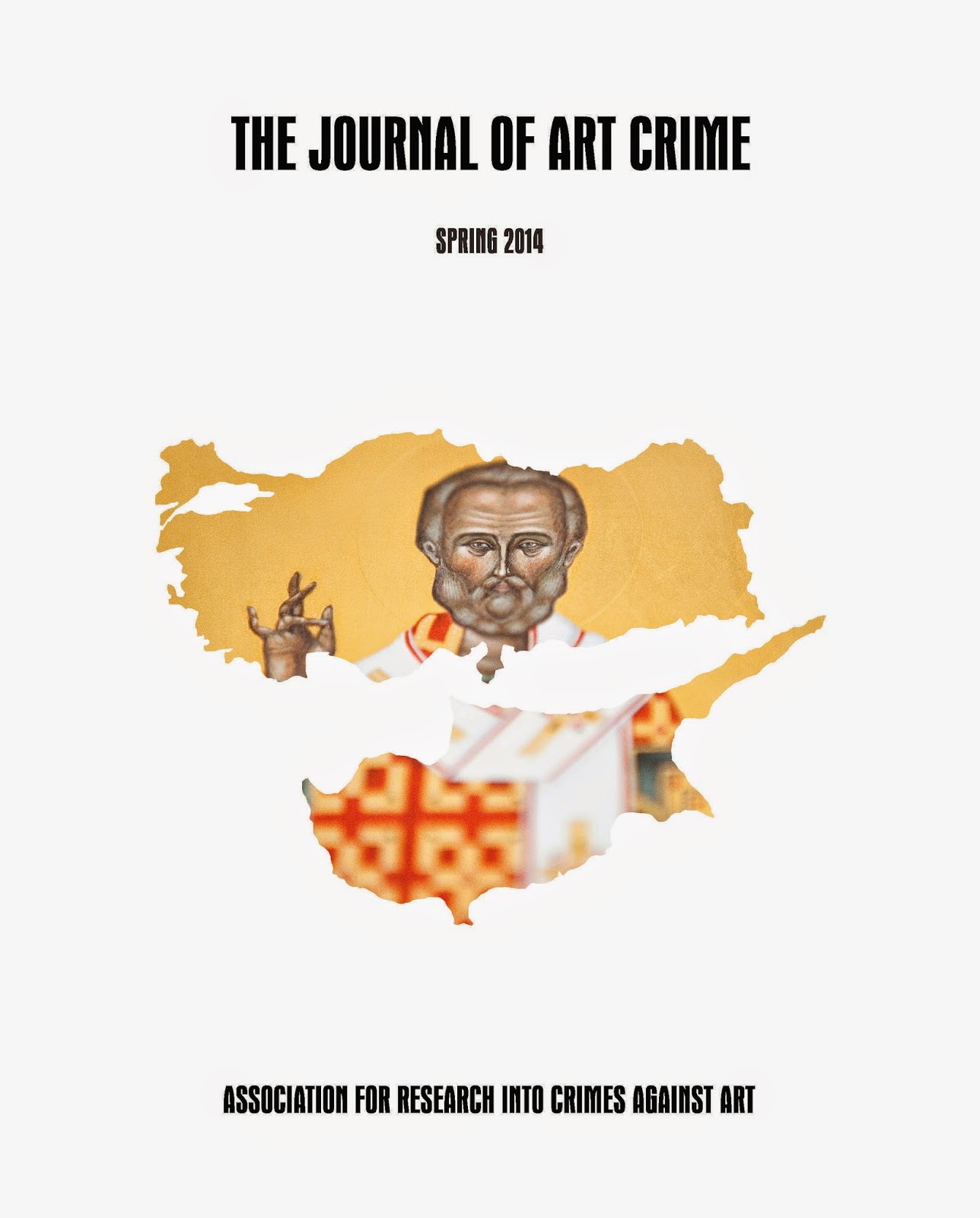Sunday, May 25, 2014 -  Antiquities Trade,Ethics,incantation bowls,Iraq,scholars,war
Antiquities Trade,Ethics,incantation bowls,Iraq,scholars,war
 No comments
No comments
 Antiquities Trade,Ethics,incantation bowls,Iraq,scholars,war
Antiquities Trade,Ethics,incantation bowls,Iraq,scholars,war
 No comments
No comments
University of Glasgow's Neil Brodie on "Aramaic Incantation Bowls in War and in Peace" in the Spring/Summer 2014 issue of ARCA's Journal of Art Crime
Neil Brodie is Senior Research Fellow in the Scottish Centre for Crime and Justice Research at the University of Glasgow. Neil is an archaeologist by training, and has held positions at the British School at Athens, the McDonald Institute for Archaeological Research at the University of Cambridge, where he was Research Director of the Illicit Antiquities Research Centre, and Stanford University’s Archaeology Center. He was co-author (with Jennifer Doole and Peter Watson) of the report Stealing History, commissioned by the Museums Association and ICOM-UK to advise upon the illicit trade in cultural material. He also co-edited Archaeology, Cultural Heritage, and the Antiquities Trade (with Morag M. Kersel, Christina Luke and Kathryn Walker Tubb, 2006), Illicit Antiquities: The Theft of Culture and the Extinction of Archaeology (with Kathryn Walker Tubb, 2002), and Trade in Illicit Antiquities: The Destruction of the World’s Archaeological Heritage (with Jennifer Doole and Colin Renfrew, 2001). He has worked on archaeological projects in the United Kingdom, Greece and Jordan, and continues to work in Greece.
Abstract for Aramaic Incantation Bowls in War and in Peace by Neil Brodie:
Here's the introduction to Neil Brodie's article:Since 1991, hundreds of previously unknown Aramaic incantation bowls have appeared on the antiquities market and in private collections. In the absence of any reliably documented provenance, it is widely believed that these bowls must have derived from illegal digging in Iraq after the 1991 Gulf War. Many of them are now being studied by university-based scholars. This chapter examines the legal and ethical challenges posed by their study.
The archaeological sites and museums of Iraq have been subject to intermittent and sometimes serious looting since the end of the 1991 Gulf War. Stolen and illegally exported artifacts have been traded and collected on the international market without any indication of provenance (ownership history) that might help to reveal their illicit pedigrees. The act of looting destroys material evidence of the past and the trade is in the hands of criminals. Nevertheless, many of these artifacts that are now in private hands are being published and studied by university-based scholars. This paper offers a brief overview of the legal and ethical issues that the collection and study of unprovenanced but likely looted and criminally-traded objects entails by reference to the example of Aramaic-inscribed incantation bowls.
You may finish reading this article in the Spring/Summer 2014 issue (#11) of The Journal of Art Crime edited by ARCA founder Noah Charney. The Journal of Art Crime may be accessed through subscription or in paperback from Amazon.com. The Table of Contents is listed on ARCA's website here. The Associate Editors are Marc Balcells (John Jay College of Law) and Christos Tsirogiannis (University of Cambridge). Design and layout (including the front cover illustration) are produced by Urška Charney.



0 comments:
Post a Comment